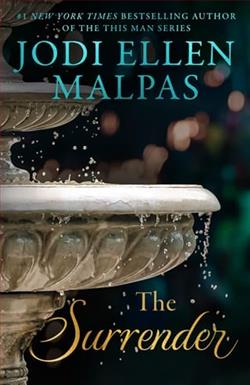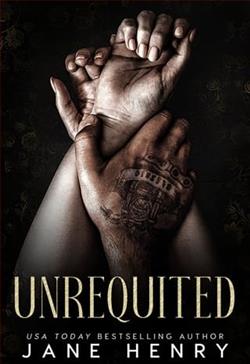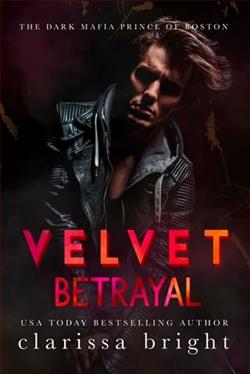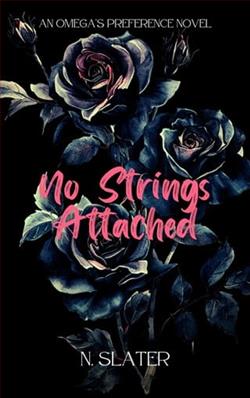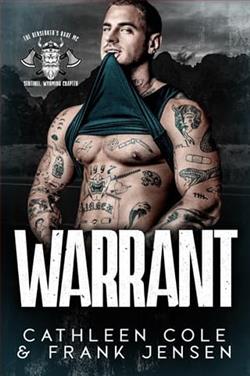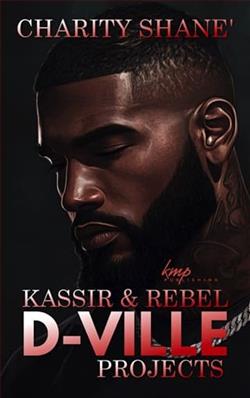Page 231 of The Daughters of Avalon
“She’s as good as any, and?—”
“Nay,” he said, and this time she gave him respite, although he knew she would resume her campaign in good time.
She was on a mission, and he frowned, because he feared she could be right. The spirit of unrest was growing. The Roman prelates were wagging their silvered tongues. Little by little, the Old Ways were being abandoned. Nesta herself was the last of a dying breed—thosefaefolkwho’d once inhabited the hills overlooking the Drowned City. Cauldron born, she was descended of the acolytes and he trusted her without fail. She was a gem among women, and though he didn’t love her as helonged to love a woman, he still wasn’t in the mood to collect more wives. As it was, he had a nest of vipers…
Some of them were here tonight.
Unfortunately, it was a king’s duty to entertain foes.
From the dais, he studied the hall’s newest guests—Uther, that golden child of the Empire, and his equally golden mage, who indeed, was quite golden. Everything about the man shone, from his pearlescent skin to his fine-gilt hair. Goddess blessed, so ’twas said, and it must be true. The mage was as fair as any druid Mael had ever beheld, and there was, indeed, an aura about him that put Mael in mind to the gods.
Both men sauntered into his hall with an arrogance born of privilege and, rather than take up a plate and find themselves a proper seat at one of the lower trestle tables, the pair approached his dais, and Uther—the sodomizing bastard—unsheathed a blade from his scabbard as he came.
Beside him, Nesta gasped, leaping up from her seat and sheltering herself at his back as three of Maelgwn’s guards rushed forward to impede Uther’s approach.
Undeterred by the guards, the warlord grinned, slippery as an eel, as he tossed up a hand, as though his men were Uther’s to command.
“Uther,” said Mael in greeting, and he too waved to his guards, urging them to fall back as his nemesis approached.
The mage remained by his side as he bowed before Maelgwn and said, “My friend.”
Friend?
May the gods rip out his tongue and cast it to the wolves. Uther was no man’s friend. He was, as they claimed, a wolf in sheep’s clothing.
The cords in Maelgwn’s neck tightened, though he smiled and said graciously, “Welcome.”
“Our King… on this holiest of nights, we come bearing felicitations from the Senate,” said Uther. “And a gift…”
And then, with a flourish, he presented a strange sword, laying it gingerly atop Uther’s palms, so that the inscription could be read on the shining blade.
Maelgwn blinked with sudden lust.
It was only once the revelry resumed that he realized the breath of the world had come to a pause… waiting to see how these foes would meet.
As the musicians began to play again, and the dancers’ feet kicked up more dust, his favored guests brought bits of nuts and fruit to their lips. Maelgwn leaned closer to inspect the blade… Intricately crafted serpents lay entwined about an elegantly fashioned hilt.
Fascinating.
On the blade itself, glowing faintly blue in the most ancient of languages, lay inscribed, “Take me, but turn the blade, and we will see.” But the runes were faint—indeed, so faint, that the inspired words might have been a chimera.
Incredible.
There was still another word etched betwixt the serpents, and this one could be read more easily:Caledfwlch, it said.
Cut steel.
Excellent craftsmanship, and no doubt a bribe, but Maelgwn was nevertheless bewitched. “Remarkable,” he said.
“Indeed,” said Uther with a knowing smile, and he flicked a short glance at the mage by his side.
No longer quite so concerned over Uther or his mage, Maelgwn longed to caress the blade.
“Who forged this work of art?”
It was Taliesin who replied. “It was crafted by theDynion Mwyn, Your Grace,” he said, with a respectful bow.
The Fair Men.








